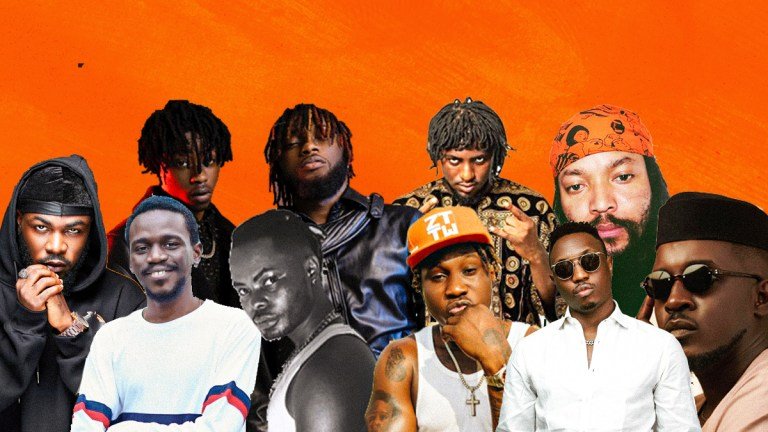By Africa Publicity
The bustling streets of Lagos were always filled with a symphony of sounds—honking cars, street vendors hawking their goods, and the ever-present rhythm of music. Among these sounds, one voice began to rise above the rest, a voice that carried the raw truths of society, that of Chinedu, better known by his stage name, “Eagle Eye.”
Chinedu grew up in Ajegunle, a neighborhood known for its vibrant culture and stark poverty. From a young age, he was acutely aware of the injustices around him. Corruption was rampant, and opportunities for the youth were scarce. Despite these challenges, or perhaps because of them, Chinedu found his voice through rap music. With its roots in resistance and its power to convey potent messages, rap became his tool for sociopolitical commentary.
“Eagle Eye” was more than just a performer; he was a storyteller, a modern-day griot whose lyrics painted vivid pictures of the struggles and dreams of his people. His song “City of Hustle” became an anthem for the youth of Lagos. In it, he rapped about the daily grind, the need to navigate a system that seemed rigged against them, and the hope that one day, things would change.
Thousands of miles away, in the bustling city of Johannesburg, a young woman named Zola was making waves with her powerful lyrics. Performing under the name “Lioness,” Zola used her music to address issues of gender inequality and violence in South Africa. Growing up in Soweto, she had seen firsthand the effects of apartheid’s lingering shadow and the systemic discrimination that persisted. Her songs were a clarion call for justice, demanding respect and equality for women.
Zola’s song “Rise Up” was particularly impactful. It became a rallying cry for women across the nation, inspiring protests and discussions on social media. Her lyrics were a blend of personal experience and broader social commentary, making her a voice for those who felt unheard. “Lioness” wasn’t just an artist; she was a movement, uniting people from all walks of life in the fight for a more equitable society.
In Dakar, Senegal, another rapper was making his mark. Mamadou, known as “Sankara’s Ghost,” drew inspiration from the revolutionary leader Thomas Sankara. He saw music as a way to challenge the status quo and ignite political change. His lyrics often criticized government corruption, the exploitation of natural resources, and the failures of African leaders to serve their people.
“Sankara’s Ghost” was particularly vocal about the issue of land rights. In his hit song “Our Land,” he rapped about the struggles of farmers whose lands were being taken by multinational corporations. His music video featured powerful imagery of protests and clashes with authorities, resonating deeply with those affected by these injustices. Mamadou’s fearless approach earned him both admiration and threats, but he remained undeterred, driven by a mission to uphold the legacy of Sankara.
In Nairobi, Kenya, a different kind of revolution was brewing. Here, a collective of young artists known as “Mtaa Warriors” was using rap to shine a light on the city’s slums. Led by a charismatic rapper named Amani, the group focused on issues like poverty, education, and the environment. Amani’s background as a teacher gave him a unique perspective, and he used his platform to advocate for better educational opportunities for all.
The Mtaa Warriors’ song “Classroom Dreams” highlighted the struggles of children in overcrowded and underfunded schools. The poignant lyrics and accompanying visuals struck a chord with many, sparking conversations about the importance of investing in education. Through their music, the Mtaa Warriors were not just raising awareness but also mobilizing communities to take action.
Back in Lagos, Chinedu’s influence continued to grow. He began collaborating with other African artists, recognizing that the issues he rapped about were not confined to Nigeria alone. One of his most powerful collaborations was with Zola. Together, they released a track called “United Front,” which addressed pan-African solidarity and the need for collective action against oppression. The song was a hit across the continent, symbolizing the unifying power of music.
Their collaboration caught the attention of international media, bringing even more focus to the issues they were passionate about. It was a testament to the power of rap music as a tool for sociopolitical commentary, bridging gaps between countries and creating a shared sense of purpose.
Meanwhile, in Senegal, Mamadou’s activism through music was yielding tangible results. The government, feeling the pressure from the public and the international community, began to address some of the land rights issues he had highlighted. It was a small but significant victory, proving that music could indeed be a catalyst for change.
In Kenya, the Mtaa Warriors’ impact was equally profound. Their advocacy for education led to several non-governmental organizations partnering with them to improve school facilities and resources in Nairobi’s slums. Amani’s dream of better educational opportunities was slowly becoming a reality, one rap verse at a time.
As the years went by, these artists continued to use their platforms to address pressing issues. They understood that the fight for justice and equality was ongoing and that their music could inspire future generations to keep pushing for change. Through their lyrics, they preserved the stories of their struggles and triumphs, ensuring that their voices would echo long after they were gone.
Rap music had become more than just a genre; it was a powerful tool for sociopolitical commentary, capable of challenging injustices and mobilizing people across Africa and beyond. From Lagos to Johannesburg, Dakar to Nairobi, the beats and rhymes of these artists carried the hopes and demands of a continent, proving that music could indeed be a force for transformation.








